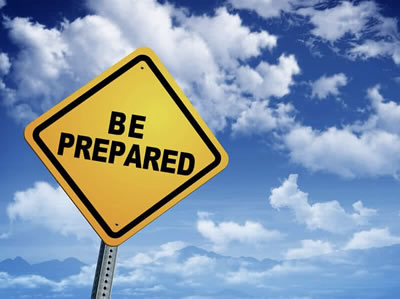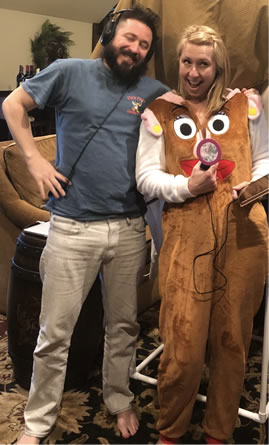 Let’s talk session prep. It’s so important to be as prepared as possible when working with your clients. Follow these steps to make your sessions more relaxing and fun – all while knocking your client’s socks off!
Let’s talk session prep. It’s so important to be as prepared as possible when working with your clients. Follow these steps to make your sessions more relaxing and fun – all while knocking your client’s socks off!
1). Bring your A Game.
Professionalism never goes out of style. Be exceptional at your craft. Be amazing to work with. Period. Good days, bad days, blah days – we all have ’em. No matter what’s going on in your personal life, you have to set any “current life drama” aside and show up for yourself and your client when you step up to your mic to work. The show must go on. And most of the time you end up feeling so great after a fun, creative, live session! #votherapy
2). Be ready to go 5-10 minutes before kick off time.
If your scheduled session is at the top of the hour, have your gear fired up, your mic levels checked and set, your scripts printed, writing utensil handy, your water-tea-throat-spray-lozenges available, and be standing in your booth 5 minutes ahead of schedule. If you’re working from home, producers often call a few minutes prior to make sure you’ve received your scripts, set mic levels with them, make sure they don’t have any issues connecting, etc… You don’t want to be a rustling hot mess and rushing into your booth as they’re connecting with you!
If you’re going into a studio for a live directed session, be there 15 minutes early, but not any earlier than that. Check in with the receptionist, let them know you’re there, but don’t talk their ear off unless they engage you. It’s not their job to entertain talent. 😉 In this case, the engineer will normally come greet you and get you all set-up in the booth a few minutes before the session time.
3). Be familiar with your client and their content.
Familiarize yourself with the products, services, companies, brands you’re voicing for. Every time you book work with a new client and chat a bit with them during a live session, it’s an opportunity for you to building a stronger working relationship with them. VO success is built on creating and nurturing solid relationships. And one way to start a conversation with a first-time client is by discussing their content with them. Do some research in advance… Visit their website, see if they have any other videos or content on YouTube, etc… Get a feel for the way they communicate.
Instead of making small talk about the weather (snore), compliment them for winning a recent award, for example. Or ask how their new re-brand is going, etc… Mention something you found interesting or intriguing about the way they do business. Clients appreciate talent going the extra mile and having a clearer understanding of what a product or company stands for. Thoughtfulness and sincerity are such important parts of creating a genuine connection with your clients. Not to mention it will help you tell a better story for them, too!
4). Dress for the occasion.
Some voiceover talent solely work from home and they like to be as comfortable as possible. Who can argue with comfort? But whether you’re working in your robe, your jammies or your yoga pants, there’s a lot to be said for feeling fresh and on the ball. If you’re feeling too relaxed, it can cause you to sound sluggish/perform with low energy. Take time to shower, put on some fresh, comfy clothes and feel great when you start your VO work day.
I know many talent who keep a variety of different shoes, props, hats, etc. near their recording booths to help them switch up their approaches when reading copy. Perhaps you’re wearing slippers and sweatpants and you need to sound like a strong, authoritative, corporate CEO. Slipping into some stilettos or rocking a sport coat while doing your read can greatly impact how poised you feel and the energy/thought process you bring to your performance. If you’re going to an outside studio for a session, dress nice/casual. Wear your clean jeans with the fewest holes… and a nice shirt. (You know, the one your Mom bought you). 😉

TVAS Coaches Chad Letts needing to sound barefoot & Melissa Moats needing to sound like Mrs. Potato Head, 😉
5). Use the moments leading up to your session wisely.
Aside from the tips mentioned in #2, if you receive your copy in advance, take some time to look it over and think it over. Understand the message. Look for words that are difficult to pronounce. Look them up! Practice saying them aloud.
Do not over-rehearse your scripts! If you read a script aloud too many times, it can be difficult or sometimes impossible for a director to take your read in a different direction during the actual session. So read the script enough times to familiarize yourself with it, and then put it away until it’s go-time!
6). Electronics are great, but old-school paper and pencil are your BFF’s during live recording.
Many talent read their scripts from an iPad or tablet when auditioning, but for actual, live, directed sessions, whenever possible, print your script and always be armed with a pencil. Scripts can go through a lot of changes on the fly, and voice actors are expected to make copy edits to their scripts or sometimes change the order of lines, etc. And often those changes can be changed several times within just a few minutes!
Where I’m going with this is – you can’t unsee pen! You’ll be so happy you had a pencil with an eraser! I’ve tried using annotation apps during live sessions and it’s just not the same. Trust this old-school voice actor. I’m looking out for you!
Side note: If your script has gone through so many copy edits that it’s hard to follow or read, often the engineer will suggest the script get revised, retyped and reprinted to make everyone’s life easier… So, there’s that. 😉 When recording at an outside studio, it never hurts to BYOP: Bring your own pencil. 😉
7). Be in tune with your body.
If you tend to get nervous easily when working with clients in real time, take a few minutes to relax and mentally prepare. Do some deep breathing exercises.
Inhale deeply – 1, 2, 3, 4.
Hold – 1, 2, 3, 4.
Exhale – 1, 2, 3, 4.
And repeat this exercise as many times as you need to calm down. Your voice is powered by your breathing, and when you’re nervous, your breath and voice are much harder to control.
Another part of your body that can be greatly affected by nerves? Your mouth. Dry mouth can lead to mouth clicks or mouth noise when on-mic, so do your best to be well hydrated in advance and always have some room temp water with you to sip on when in session. A lollipop or Jolly Rancher can always help you activate your salivary glands and quickly flood your mouth with saliva if you need an extra boost!
If dairy products or certain foods cause trouble for you, avoid them altogether before recording sessions. When recording at an outside studio, it’s never a bad idea to bring your own bottle of water, lollipops, etc… Better safe than sorry!
In addition to these pointers, everything we work on together at TVAS prepares you for live, directed sessions with actual clients!
Practice makes progress, so make sure you’re prepping for success!